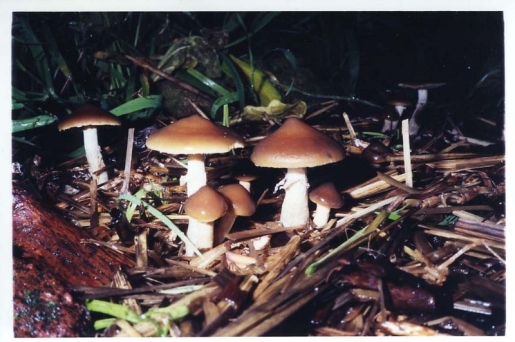
Expand your mind and chase your blues away!
When it comes to treating depression, there are a lot of strange cures to be found. There’s blue lights and chocolate. If those don’t work, there’s always electro-convulsive therapy, or shock treatment. If that doesn’t work, there’s… magic mushrooms? Yes, according to new research conducted at Imperial College London, psilocybin or magic mushrooms may be able to treat depression by altering the brain chemistry during use.
During the study, 30 healthy people were given a single dose of psychidleic mushrooms while hooked into an MRI to study the effects on the brain. Some six months after receiving that one dose of psilocybin, the people treated had lower depression scores. (The study appeared in the Proceedings of the National Academy of Sciences.) In a second study to be published Thursday in the British Journal of Psychiatry, 10 people who received a dose of psilocybin had immediate improvements in memory and personal well-being for two weeks after the dose.
“Psychedelics are thought of as ‘mind-expanding’ drugs, so it has commonly been assumed that they work by increasing brain activity, but surprisingly, we found that psilocybin actually caused activity to decrease in areas that have the densest connections with other areas,” said Dr. David Nutt, the lead researcher on the two magic mushroom studies. “These hubs constrain our experience of the world and keep it orderly. We now know that deactivating these regions leads to a state in which the world is experienced as strange.”
Tags: magic mushrooms, psychedelic mushrooms, Proceedings of the National Academy of Sciences, psilocybin, unusual research, the human brain, brain chemistry, magic mushrooms treat depression, psilocybin treats depression, drugs fight depression, unusual research, David Nutt, Imperial College London, British Journal of Psychiatry, drugs, unusual use of narcotics, mushrooms improve depression







